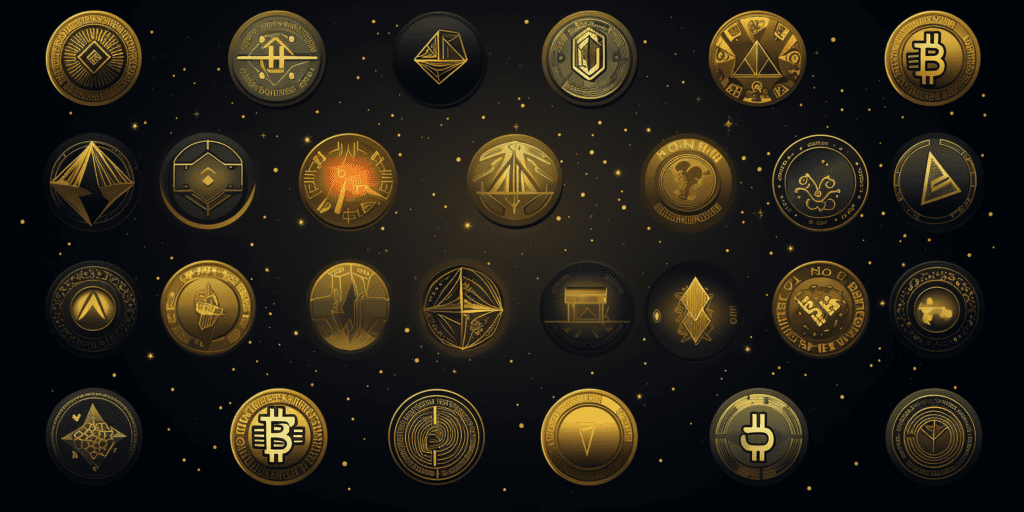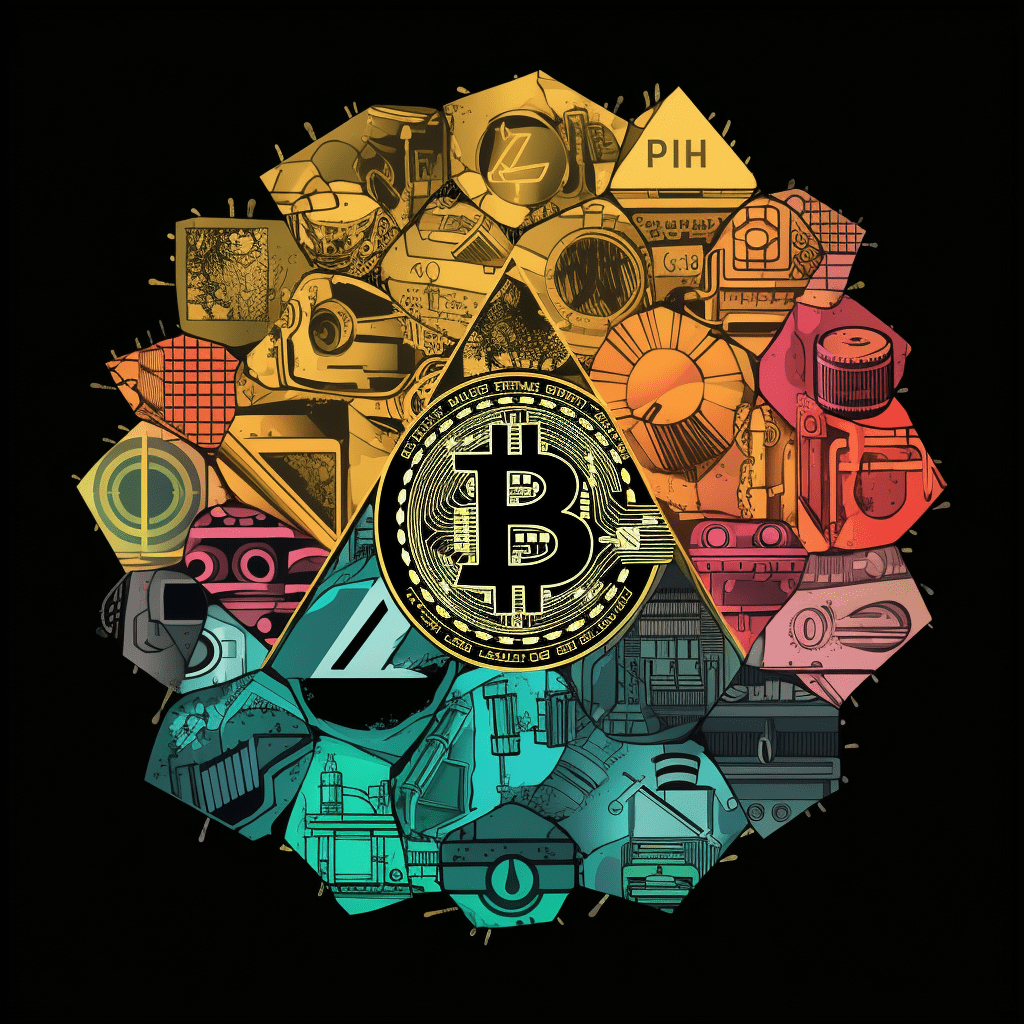Crypto Jargon Demystified: A Comprehensive Glossary of Cryptocurrency Terms
Introduction
Cryptocurrencies have introduced a wealth of new terminology and jargon, making it essential for enthusiasts and investors to have a firm grasp of the language of the crypto world. In this comprehensive guide, we demystify the intricate world of cryptocurrency terminology. Whether you’re a newcomer looking to enhance your understanding or a seasoned pro wanting to brush up on your knowledge, our crypto glossary has got you covered.
A
- Altcoin: Any cryptocurrency other than Bitcoin. Altcoins include Ethereum, Ripple, Litecoin, and thousands of others.
- ATH (All-Time High): The highest price ever reached by a cryptocurrency since its inception.
B
- Blockchain: A decentralized and distributed ledger technology that underpins most cryptocurrencies. It records all transactions across a network of computers.
- Bitcoin: The first and most well-known cryptocurrency created by an anonymous person or group of people using the pseudonym Satoshi Nakamoto.
C
- Cryptocurrency: A digital or virtual form of currency that uses cryptography for security. Examples include Bitcoin, Ethereum, and Ripple.
- Crypto Wallet: A digital wallet used to store, send, and receive cryptocurrencies securely.
D
- Decentralized: A system or network that operates without a central authority or single point of control.
- DApp (Decentralized Application): An application that runs on a blockchain network, using smart contracts to perform various functions.
E
- Exchange: A platform where users can buy, sell, and trade cryptocurrencies.
- ERC-20: A technical standard used for smart contracts on the Ethereum blockchain, facilitating the creation of tokens.
F
- FOMO (Fear of Missing Out): The fear that drives people to invest or trade in a cryptocurrency due to the worry of missing out on potential profits.
- Fork: A change in the rules governing a cryptocurrency’s blockchain. Forks can be soft (backward-compatible) or hard (not backward-compatible).
G
- HODL: A misspelled version of “hold,” often used to express the act of keeping and not selling cryptocurrencies during market fluctuations.
- Hash: A cryptographic function used in blockchain technology to secure and verify transactions.
I
- ICO (Initial Coin Offering): A fundraising method where new cryptocurrencies or tokens are sold to investors before being listed on exchanges.
- Immutable: Data on a blockchain that cannot be altered or deleted, ensuring transparency and security.
J
- JOMO (Joy of Missing Out): The opposite of FOMO, representing the satisfaction of not participating in an investment or trading opportunity.
K
- KYC (Know Your Customer): The process of verifying the identity of customers to prevent fraud and comply with regulations on exchanges and platforms.
- Key Pair: In cryptography, a public key and a private key used for secure transactions and ownership verification.
L
- Lambo: A slang term referring to the aspiration of crypto investors to make enough profit to afford a Lamborghini luxury car.
- Liquidity: The ease with which an asset, in this case, a cryptocurrency, can be bought or sold without significantly affecting its price.
M
- Mining: The process of validating and adding new transactions to a blockchain, typically involving the use of computational power.
- Moon: A term used to describe a significant increase in the price of a cryptocurrency, often signifying a bullish market.
N
- Node: A computer connected to a cryptocurrency network that plays a role in maintaining the blockchain’s integrity.
- Non-Fungible Token (NFT): Unique digital assets often used for representing ownership of digital art, collectibles, or in-game items.

O
- OTC (Over-the-Counter): A method of trading cryptocurrencies directly between parties without using traditional exchanges.
- Oracle: A third-party service or entity that provides real-world data to smart contracts on a blockchain.
P
- Private Key: A cryptographic key that allows access to and control of cryptocurrencies in a wallet.
- Public Key: A cryptographic key used for receiving cryptocurrencies and generating digital signatures.
Q
- QR Code: A scannable code that contains wallet addresses, making it easier to send or receive cryptocurrencies.
R
- ROI (Return on Investment): A measure of the profitability of an investment, often expressed as a percentage.
- Smart Contract: Self-executing contracts with the terms of the agreement directly written into code. They automatically execute when predetermined conditions are met.
S
- Stablecoin: A cryptocurrency designed to maintain a stable value, often pegged to a fiat currency like the US dollar.
- Token: A digital asset representing ownership or access rights on a blockchain.
U
- USD (Tether): A type of stablecoin that is pegged to the US dollar, designed to maintain a 1:1 value ratio.
- Utility Token: A type of cryptocurrency that provides access to a specific product or service on a blockchain platform.
V
- Volatility: The degree of price fluctuations in a cryptocurrency over time. Higher volatility means larger price swings.
W
- Whale: An individual or entity that holds a large amount of cryptocurrency, capable of influencing market prices.
X
- XRP: The native cryptocurrency of the Ripple network, designed for fast and cost-effective cross-border payments.
Conclusion
This glossary provides a glimpse into the vast world of cryptocurrency terminology. Whether you’re a newcomer or a seasoned crypto enthusiast, understanding these terms is essential for navigating the world of digital assets effectively. As the cryptocurrency ecosystem continues to evolve, staying informed about the latest developments and terminology is key to making informed decisions and participating in this exciting financial frontier.
Remember that the cryptocurrency space is continually evolving, and new terms and concepts emerge regularly. Staying curious and engaged in the crypto community is a great way to keep expanding your knowledge of this fascinating technology.
For more insights and updates on cryptocurrency and blockchain technology, visit Cryptopulse Hub.







